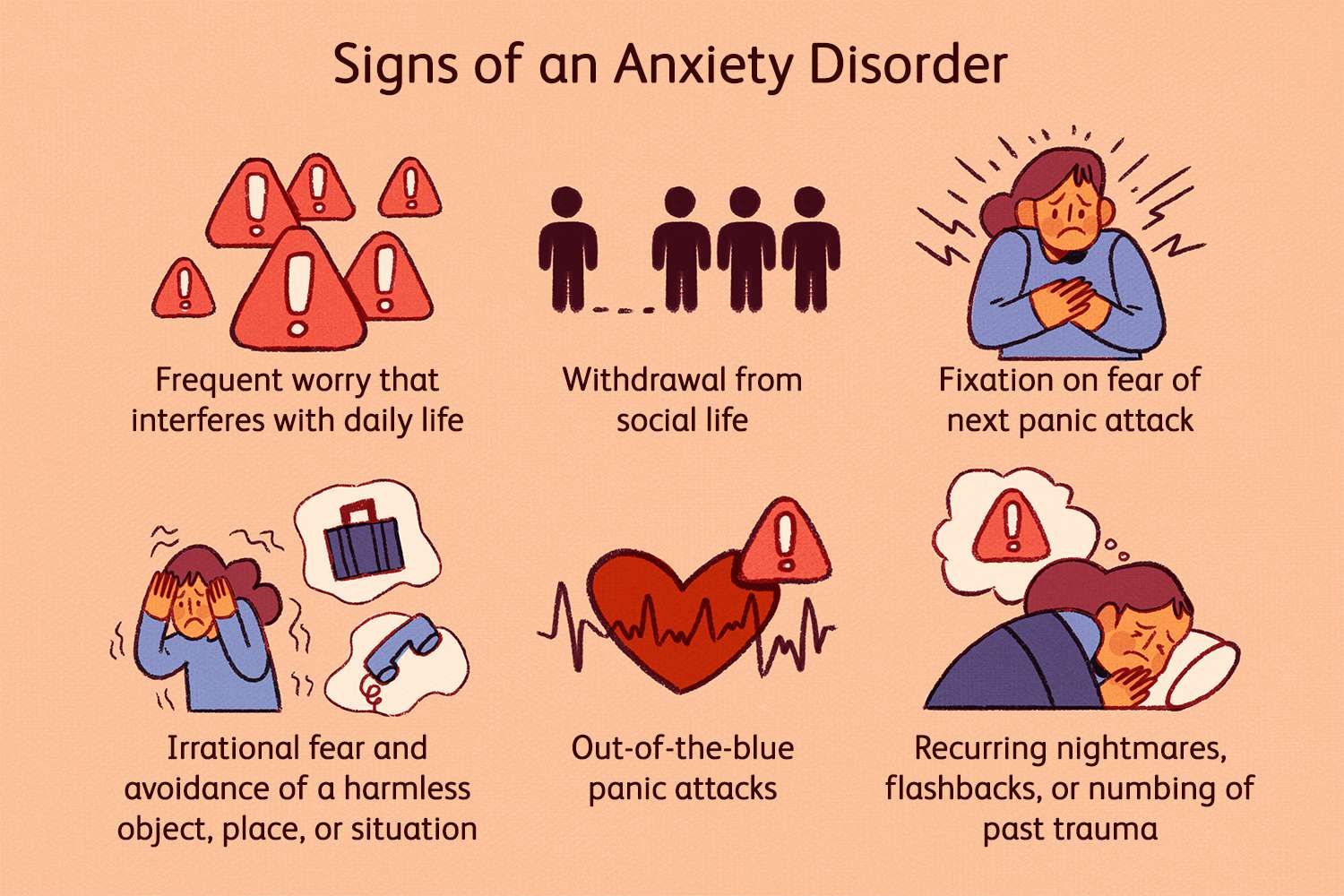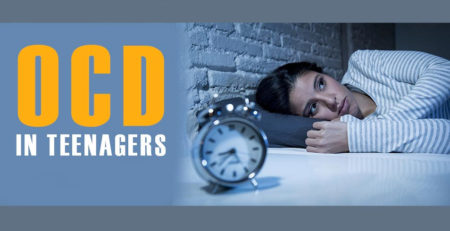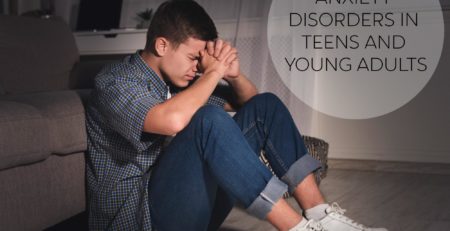How pre-teens and teens can manage anxiety
About anxiety
Everyone can suffer from anxiety at some point in their life. It’s a common emotion characterized by a feeling of worry, fear and apprehension. Anxiety isn’t limited to these feelings, however – it also includes physical symptoms like nausea and sweating, as well as changes in behavior like avoiding the source of worry or seeking additional reassurance. Anxiety can be situational and thus resolved after the situation has passed, but it can remain without a specific cause. Everyone experiences some level of anxiety – whether resolving it is a matter of reframing your perspective or seeking professional support depends on its severity and individual circumstances.
Anxiety can present like stress, and it is essential to recognize the distinction between the two. While stress can be an anticipated response to external challenges, events, or pressures, when your child experiences anxiousness, they may have physical reactions such as increased heart rate, quickened breathing, and muscle tension. Knowing the difference between anxiety and stress is paramount for parents to effectively understand and assist their children with whatever they arefeelParents can effectively help their children manage their emotional states by actively evaluating the differences between anxiety and stress.
Anxiety in pre-teens and teenagers
Protecting mental health is particularly important during the pre-teen and teenage years, as this period can be characterized by progressive change. Emotional, physical, and social transformations occurring in sync with an evolving brain structure results in typical anxieties amongst this major life stage. Such anxieties may appear in contexts such as transitioning to secondary school, striving for body image ideals, connecting with friends, experiencing one’s first job or performance in a school play and attending school formals. Furthermore, newfound independence could fuel anxieties surrounding responsibility, finances, and employment. It is thus essential to encourage open communication amongst pre-teens and teenagers to confront the common anxieties associated with their changing lives.
Helping pre-teens and teenagers manage Anxiety
Mastering ways to cope with anxiety is an essential life lesson for our youth, and it lies in your hands to help your child understand and navigate through these tricky times. Here are a few ideas that can shoo away their anxiousness: Start by setting up a supportive home environment; Show them the right path through stories, narratives, and remind them the need of self-belief; Help them problem solve while they are in distressed situations, enact with good manners, set limits on worried repeat offenses; Last but not least, a healthy balance between work, study and rest will go a long way in preserving their mental health. So, let’s turn this anxious energy into positive outbursts for greater discoveries!
- Encourage your child to talk about anxieties
When it comes to supporting your child and helping them manage their anxiety, talking and listening can make all the difference. By discussing the things that are causing your child’s anxiety, they can gain invaluable insight into why they may feel the way they do, and you can get a better understanding of how best to support them. Additionally, simply allowing your child to voice their concerns can often be enough to reduce their levels of anxiety, as it gives them an effective avenue for letting go of those worries. So next time your child is feeling anxious or overwhelmed, encouraging them to talk it out could be the key to feeling much calmer – both inside and out.
- Acknowledge your child’s feelings
Acknowledging your child’s feelings is an important part of validating their experiences and helping them build resilience. When children feel like their worries are being taken seriously, it helps them to develop trust in the people that are there to support them through difficult situations. For instance, if your child is feeling anxious about passing an exam, attempt to empathize with what they’re going through and provide assurances that you have faith in their abilities. Remind them that each individual has unique strengths and that no matter what happens, you believe in them. By providing understanding and reassurance, you can give your child the tools needed to face future uncertainties with a sense of confidence and self-compassion.
- Encourage brave behavior
Encouraging brave behavior in children is essential for their self-growth and development. A good way to start is by setting small goals that allow them to challenge their anxieties at their own pace. Unlike imposing your expectations on them, parents should gently support their children in challenging situations they feel anxious about, such as performing in front of others. To begin with, families could suggest their children practice lines in the comfort of home before taking the big leap to face an audience. Additionally, instilling positive self-talk, self-compassion and assertiveness will prove beneficial for them as they embark on this journey of courage and bravery. Lastly, it should not be neglected to reward and praise a child who takes a courageous step away from their fears – no matter how small.
As a parent, it is important to provide your child with a positive attitude towards anxiety. One of the best ways to do this is to be the role model they need in managing your own anxieties. Showing them that you still feel anxious sometimes but that you have healthy coping mechanisms can help them navigate their own anxieties too. You might share stories related to your own experiences or struggles with anxiety when you were younger, as these tales can help remind your child that it is natural to feel anxious at times. Talking openly and honestly about how anxiety affects you, as well as how you work with it productively, can empower your child to face their own feelings in a healthier way.
Helping pre-teens and teenagers feel safe and secure
Ensuring pre-teens and teenagers feel safe and secure is essential for developing their social and emotional well-being. This can be achieved through creating a family atmosphere where children are given quality time with both parents and siblings, as well as spending time in activities that are supportive of individual needs. Parents can tailor the family atmosphere to foster development in their child by building a routine that takes into account meals, family rituals, and activities that create opportunities for relaxation. Ultimately, providing an atmosphere of comfort is key to allowing pre-teens and teenagers to flourish.
Encouraging pre-teens and teenagers to make healthy choices
Many pre-teens and teenagers experience anxiety, which can negatively impact their mental health. As anxiety can be a difficult emotion to deal with, parents may consider healthy lifestyle choices as a form of coping. Walking outside, exercising, or even engaging in leisure activities such as drawing or reading can reduce stress and provide momentary relief. It is also important for parents to listen to their child’s worries and to provide the appropriate support when needed. By fostering healthy habits, pre-teens and teenagers may find it easier to regulate their anxiety levels and prevent further issues from arising.
- Get enough sleep
One of the most important things that pre-teens and teenagers can do to reduce anxiety is to get enough sleep. The National Sleep Foundation recommends that teenagers get 8-10 hours of sleep each night. However, many teenagers do not get enough sleep due to late night activities such as homework, socializing, and extracurricular activities.
- Eat a healthy diet
Another important way to reduce anxiety is to eat a healthy diet. Eating plenty of fruits, vegetables, and whole grains can help to reduce anxiety levels. Additionally, avoiding sugary and processed foods can also be helpful.
- Exercise regularly
Exercising regularly is another great way to reduce anxiety. Exercise releases endorphins, which have mood-boosting effects. Additionally, exercise can help to improve sleep quality and increase energy levels.
- Avoid drugs and alcohol
Pre-teens and teenagers should avoid using drugs and alcohol as they can worsen anxiety symptoms. Additionally, drug and alcohol use can lead to other problems such as addiction and health issues.
- Talk to someone you trust
If you are feeling anxious, it is important to talk to someone you trust such as a parent, teacher, or counselor. Talking about your anxiety can help to lessen its symptoms and make it more manageable
When to be concerned about anxiety
If your child is showing signs of anxiety, such as being constantly nervous or feeling unable to control their worries for long periods of time; it’s important to consider professional help. The earlier that an anxiety disorder is recognized and treated, the better the outcome for your child in terms of their mental health and overall wellbeing. Seeing a doctor or another qualified health professional is the best step forward if you are worried about how much your child’s anxiety is impacting their schoolwork and social life. With appropriate treatment and support, anxiety disorders can be successfully managed so it is important to seek help at the first sign of difficulty.
 Identify Your Triggers
Identify Your Triggers
One of the first steps to managing your anxiety is to identify your triggers. A trigger is anything that sets off your anxiety. Common triggers include certain people, places, or situations. Once you know what your triggers are, you can start to avoid them or be prepared for them when they do occur.
Learn Relaxation Techniques
Another important step in managing your anxiety is to learn relaxation techniques. Relaxation techniques can help you to cope with anxiety by reducing the physical and mental symptoms of anxiety. Some common relaxation techniques include deep breathing, progressive muscle relaxation, and visualization.
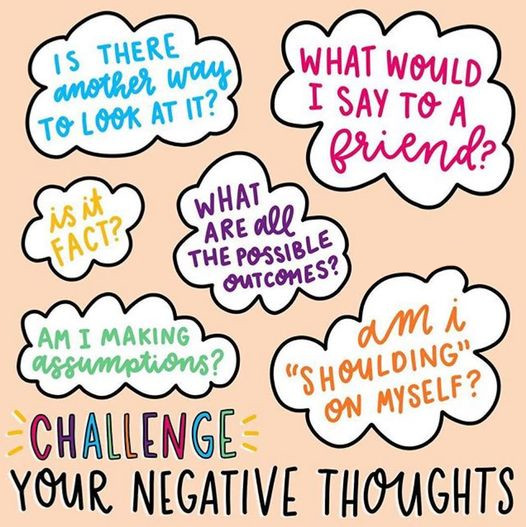 Challenge Your Negative Thoughts
Challenge Your Negative Thoughts
One of the main things that can contribute to anxiety is negative thinking. If you find yourself constantly worrying about things that may never happen or dwelling on past mistakes, it can be helpful to challenge these thoughts. Questioning your negative thoughts can help you to see things in a more realistic light and may help to reduce your anxiety levels.
Avoid Caffeine and Alcohol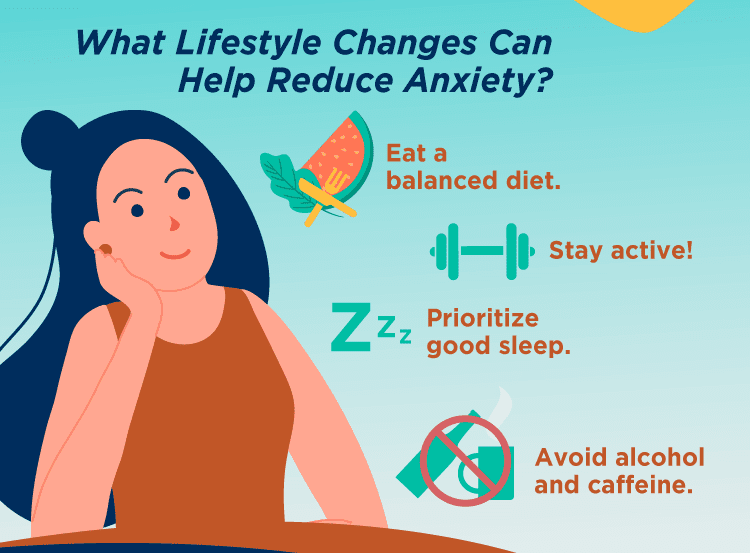
Caffeine and alcohol are two substances that can actually make anxiety worse. Caffeine is a stimulant that can increase your heart rate and make you feel more jittery, while alcohol is a depressant that can make you feel more anxious and stressed. If you find that either of these substances makes your anxiety worse, it may be best to avoid them altogether.
If your child’s anxiety is starting to interfere with their daily life, it may be time to seek professional help. A psychiatrist can help you to understand and manage your anxiety healthily. Call today at 816.819.5166 or Schedule Online.
